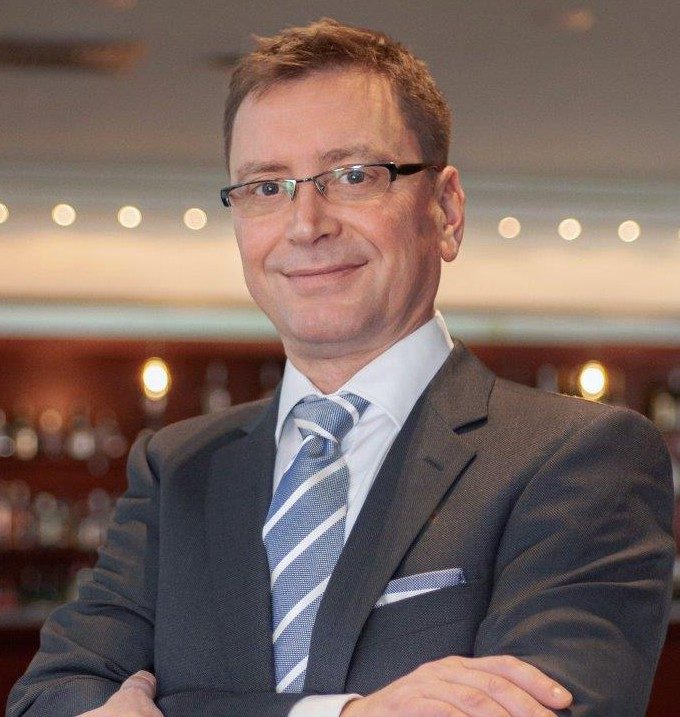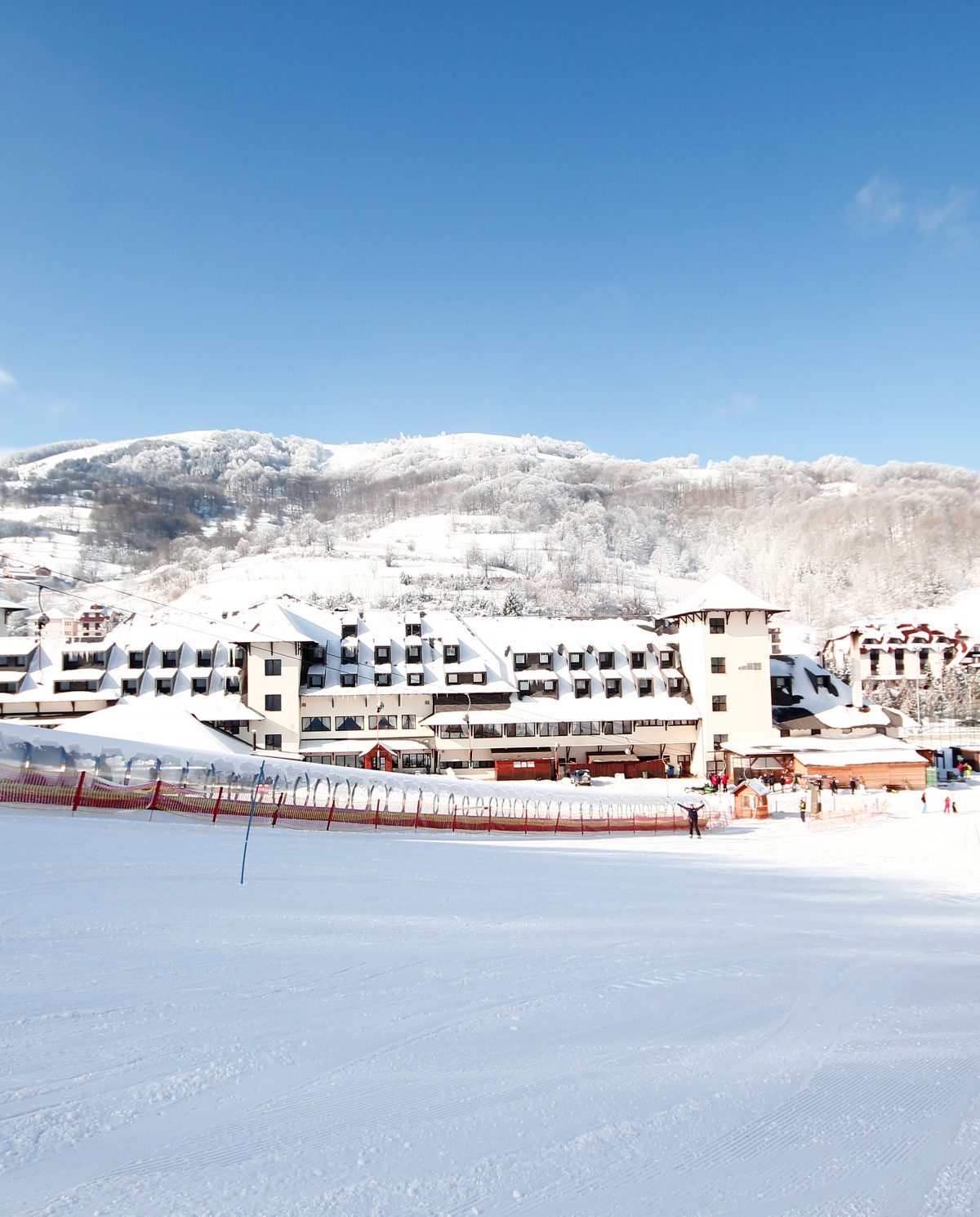Since the beginning of the crisis, the Junior Hotel has demonstrated great flexibility towards the implemented changes and restrictions, while always treating the health of our customers and our employees as the highest priority.
COVID-19 has affected everyone around the world, and the hotel industry suffered the heaviest blow. Like so many industries, the hospitality industry will also see both subtle and substantial shifts in the post-pandemic era. Some have already become apparent. I think that convincing customer that the hospitality industry can provide a safe environment is currently the biggest challenge the industry is facing.

You have extensive experience in multinational and tourism companies. What is crucial for someone to be a good manager in tourism and what is most important?
Hotels are extremely complex environments which require a lot of work performed behind the scenes to ensure a comfortable and relaxing experience for their guests. The following are skills that managers have to have to balance several different responsibilities and duties:
– Communication skills to successfully handle situations involving other people. The manager is a public face that represents the vision and values of the hotel and should be able to communicate that to the customers, authorities, and investors.
– Interpersonal skills. In stressful situations, managers should always maintain their integrity, professionalism, patience and understanding as they interact daily with a diverse group of people, of different age, preferences, cultural background. There will be times when they will inevitably run into distasteful personality types and unusual international traditions or requests, thus it is very important to listen and adapt to different situations.
– Leadership-team builder skills. Hotel staff from different sectors constantly interacts with each other and with guests, in one way or another. This means that it is very important to develop strong leadership skills to build, educate and continuously train one’s team. A more cooperative, open and effective team environment will help improve both the staff’s productivity and the guest’s experience.
“Last but not least, something that is applicable to everything we do, and I personally consider the most important characteristic is that you have to love what you do”
– Operational knowledge. Daily responsibilities and an obligation to make the right decisions demand that hotel managers have a fundamental and well-rounded basis of knowledge of how hotels work, including accounting, human resource management or cost control and pricing.
– Financial management skills. Managers should have the ability to handle financial reports, understand financial concepts, budget and analyze financial data to make the right decisions and maintain a successful business.
– Flexibility skills. As the job itself frequently involves unforeseen and unexpected issues arising at the most inopportune times, flexibility is a necessary skill that helps the manager make decisive and effective decisions.
– Detail-oriented. In the hospitality sector, customers judge everything in real-time. Managers must remain vigilant and focused on every detail, as well as delegate tasks and follow their implementation – from huge ones such as safety concerns to the smallest, e.g. if the picture on the wall is hanging straight.
– Last but not least, something that is applicable to everything we do, and I personally consider the most important characteristic is that you have to love what you do. This is usually the basic motive to train and develop our personality and skills.
You have been living in Serbia for ten years. What is the difference between being a hotel director in Serbia and a director in tourism in Greece? What can we learn from each other?
The basic difference between the two countries is that Greece has a longer and larger tradition and experience in the industry hospitality, being a tourist destination. That gives Greece an advantage in the rally of investments in hospitality and tourism development. Serbia has about 500 categorized hotels compared to 13.000 in Greece. That translates to development and wage opportunities for hotel managers in Greece. On the other hand, in the last decade, Serbia has changed the overall goals and mentality and started to seriously focus on tourism, especially during the winter seasons. This has resulted in lots of infrastructure projects that have attracted many domestic and foreign investors. This also means that currently more opportunities are created here in Serbia, thus reducing the brain drain of young managers.

You run a hotel and a sports complex with great results. What challenges do you face today when we have a pandemic and a crisis not only in our country but in the whole world?
Since the beginning of the crisis, the Junior Hotel has demonstrated great flexibility towards the implemented changes and restrictions, while always treating the health of our customers and our employees as the highest priority. That is why we have established cleaning and hygiene high standards in accordance with the relevant regulations. This means that we have taken all the required precautions, such as using disinfection barriers, masks, dispensers, dividers, keeping distance, etc. In addition to the measures implemented in collaboration with the local health authorities, our protocols also include sterilization of rooms before registration and total disinfecting all the public areas and sports fields two times a day, making our premises safer and cleaner while providing peace of mind for our guests. We do this thanks to the cooperation with the company Sterile d.o.o. that supplied us revolutionary devices and chemicals to make the war against COVID-19 easy. We are proud to be among the first hotels certified by HORES to be Clean & Safe.
Does the extensive experience contribute to a better solution everyday challenges and problems, and how important is it to reconcile not only external factors but also internal ones such as team management, information flow, etc.?
Experience can be a great tool for any business. However, this very unusual period we face proves that experience alone might not be enough. It is also important that a person has the ability to accept changes. The hotel industry is not the same as 10 years ago. Demands, information, data, speed, technology, norms and time have all been elevated to a higher level. It is becoming increasingly complicated to deal with numerous tasks, maintain internal balance, have satisfied guests and run a successful business. “I’m getting older while being taught all the time,” said the philosopher Solon the Athenian.
“The positive thing is that the gondola project is currently being implemented and will safely connect Brzeće with the centre of Kopaonik”
The Junior Hotel is a leader in the development of tourism in the municipality of Brus and the tourist centre Brzeće. What are your plans for completing this and starting next year?
Unfortunately, the coronavirus contagion has also affected our investment plans, which included large-scale renovation, establishing a new conference centre and expanding our spa and our F&B facilities. The positive thing is that the gondola project is currently being implemented and will safely connect Brzeće with the centre of Kopaonik. The gondola project, combined with the continuous investments in ski resorts in Serbia which are creating new amenities and content both in winter and summer, will give a huge boost and new impetus to our region and hopefully a new motive to continue with our investment plans.
What can Serbia and individual hotel complexes, including the Junior Hotel, do in to attract more foreign tourists to our mountains (provided the pandemic calms down)?
What needs to be done for Kopaonik is to be systematically and constantly advertised and promoted as a summer and winter mountain destination. That entails informing and attracting primarily tourists from neighbouring countries, such as Greece, who traditionally choose the Bulgarian mountains. With all the investments that have been made in infrastructure, services, accommodation as well as in road construction in recent years, Kopaonik stands shoulder-to-shoulder with other mountain destinations.